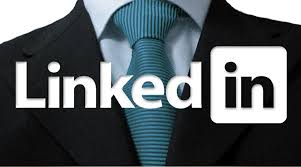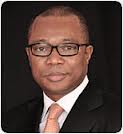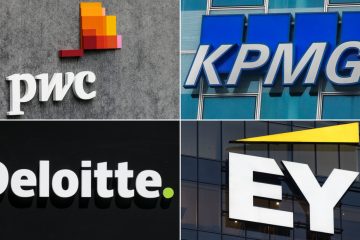
Few days ago, one of the contributors to my career and management blog, JarusHub, did an article on lessons he learnt from listening to James Lafferty, former CEO of Procter & Gamble and CocaCola West Africa and now CEO of British American Tobacco Company (BAT) Philistine, at a leadership event.
Two days after the publication, James himself had read the article and dropped his comment. I was impressed. CEO of BAT personally commenting on my blog. This got me thinking, if the CEO of BAT were a Nigerian, would he have commented on a private citizen-owned blog?
I am an internet buff. I am also a close watcher of activities and management styles of top executives, especially in America and Nigeria. The desire to learn from these executives, as well as the need to be up to date as a career issues blogger, has meant I have to follow many of them on the easiest channel to follow anyone: internet. I spend a good part of my evenings and weekends reading articles by or on executives, from those of startups to well established companies. LinkedIn, Forbes, Entrepreneurs.com and a few other platforms have been useful in this regard.
Another example: Few days ago, Strive Masiyawa, the Zimbabwean multi-millionaire and founder of Econet Wireless, made the following Facebook post under the title “Raising Money to Build a big Company – An Example of How to Raise Money from Investors Using a Stock Market Exchange”:
A Stock Market Exchange is one of the most ingenious mechanism ever created to help entrepreneurs raise money to fund the development of a business.
Most of the world’s leading entrepreneurs including global icons like Bill Gates, Jack Ma, Aliko Dangote, Patrice Motsepe would not be there today without a Stock Exchange Market.
If you dream of one day building a billion dollar company, and become one of these global icons, you better start to understand what a stock exchange market is and how it “really” works!
HERE IS MY OWN STORY:
In 1998 after securing a license to build a cell phone network in Zimbabwe, following a gruelling 5 year legal battle; I worked with my team to prepare a five year BUSINESS PLAN, to present to investors: -One of the things the Business Plan showed us was that we needed to raise at least $10m, to get started. As the promoter I did not have that kind of money… So what was I to do? -The Business Plan also showed that it would be dangerous to borrow that kind of money…. A good Business Plan, will also show you whether you should borrow money from a bank, or whether you should look for investors who will buy shares for “equity”. This BP “showed” us we must find investors, and get “equity” financing, before raising any debt.
You can get “equity” finance from private investors, or from public investors. I decided I wanted to go to public investors (I have explained before why I wanted public investors).
If your country does not have a proper Stock Exchange Market, you cannot access probably the most important sources of funding for a business. It also makes it very difficult for your entrepreneurs to build big businesses. Countries with no Stock Exchanges or poorly constructed exchanges generally do not produce top entrepreneurs either.
Fortunately my home country Zimbabwe, has the second oldest Stock Exchange Market, in Africa, after South Africa. It was first established almost 100 years ago. In 1998 the Zimbabwe Stock Exchange was still able to mobilise both local and international capital to support business people. I have written in the past about my battle to get them to let me raise money from the public, through an Initial Public Offering (IPO). We prepared a prospectus which we published in the newspapers. We offered 40% of our company to members of the public both local and internationally to raise the $10m. Thousands of people rushed to buy the shares because they wanted to be my partners in owning the business. What I did is not different to what Aliko Dangote did in Nigeria, or what Patrice Motsepe did in South Africa. It is exactly what Bill Gates and Paul Allen did in America. Others are doing it everyday across the world. That is why Stock Exchanges exist, and that is how you access Trillions of dollars available to build and grow businesses!
# The biggest buyers of shares on most exchanges,(by value) are Insurance companies, and Pension Funds. So if you have a life policy or make pension contributions through your job, you are probably a shareholder of most public companies in your country, because this is where they invest most of your money. Some of you are shareholders even of the company I started without even being aware it it!
# Once I “listed” the company my new PARTNERS (the public) who bought the initial shares, were now free to go to the market and either sell, or look for more from others who had bought. If the demand was high, the price went up, and if the demand was low the price came down. This buying and selling does not involve the company in any way. We had our raised our money, and could now deploy it to grow the business. If we needed more money we could simply sell more shares ourselves, in another process, known as a RIGHTS ISSUE.
I never returned to ask shareholders to give us additional capital, as often happens. Instead I retained all the profits in the company for 5 years, and used them to finance further growth. I was heavily criticised at the time for this policy, by some myopic observers, who wanted me to pay dividends. The company went up in value from $10m, to more than $1.5bn by 2014, despite the huge economic challenges the country has faced.
In my next post, I will show you how I started to “buy” shares in global businesses, when I was only seventeen and still at school.
***
Here is one of the most successful African entrepreneurs sharing, directly, not by some assistant, his entrepreneurial journey on Facebook. He does that from time to time and also takes his time to answer random questions from readers. With almost eight hundred thousand followers, Masiyawa’s wall passes for an MBA class on Facebook!
One trend I have observed is that while executives in other climes are opening up on the internet, writing articles, sometimes casually, on their experience running companies, or using twitter to drop nuggets on management, Nigerian executives do not appear to be ready to catch the bug. LinkedIn, for example, has a special platform, called LinkedIn Pulse, that allows influential users to publish articles. Prominent users of this channel include Bill Gates of Microsoft; Jack Welsh, former CEO of GE; Jim Kim, President of the World Bank, to mention a few. I’m not aware of any A-list Nigerian CEO that has published an article on LinkedIn.
Richard Branson of Virgin Group, known for maintaining a personal blog where he shares his views on entrepreneurship and management, was once asked by curious readers whether he is the one that actually writes those articles and posts attributed to him, he replied that he writes most of them. Branson is also active on twitter.
Nigerian executives are still largely social media-shy. Most of them actually have authentic social media accounts (as opposed to those opened by impostors with their names – which are easy to detect anyway), they refused to be active.
A few are however relatively active. Fola Adeola, Founder of Guaranty Trust Bank, tweets like once in a week, mostly on politics and sometimes on football. His tweets are usually short and humour-laden. Former CEO of United Bank for Africa, Tony Elumelu, is more active on twitter. With a little over one hundred and twenty thousand followers, the proponent of Africapitalism is probably Nigeria’s answer to Masiyawa, as his tweets are usually business related motivational quotes. I don’t know whether he posts those tweets himself or he gets some media manager do it, but the tweets appear like those personally written.
Oando CEO, Wale Tinubu, who came to the twitter game quite late, may however be the game-changer as he appears to be more involved than almost everyone else. The oil magnate uses twitter to share news bordering on his company as well as pictures of some of his business activities. More remarkably, he gets organized twitter and Google hangouts where people get to ask him questions on his company. I think that is a good idea.
Africa’s richest man and one of Masiyawa’s business idols from the way the Zimbabwean regularly makes reference to him in his social media interventions, Aliko Dangote, is actually on twitter, and in fact, got twitter bubbling the day he joined last year, but it does appear the Kano-born billionaire is a per-quarter user of social media. His posts are so few and far between.
If using twitter and Facebook are still unattractive to our executives, then it is no surprise that they have not taken (and may never take ) to blogging to express their views and share their management philosophies. I know of only one top executive, Iquo Ukoh (pictured up), Executive Director, Marketing Services, Nestle Nigeria, that blogs. She runs a blog where she discusses food recipe.
There is a common perception in Nigeria that only the ‘jobless’ youths are active on Social Media; that people that frequently express their views through blogs, Facebook and twitter have nothing to do with their lives. Now, I wonder whether Richard Branson or Steve Masiyawa are also not busy.
This is why I think Nigerian executives need to come out and join the social media train, if not for entertainment purpose (and that’s not a bad purpose), for educative purpose. We need them to connect with us and tell us their stories. It doesn’t hurt.
***
Subscribe to JarusHub for more articles on career and management.
[subscribe2]
Established in March 2013, JarusHub is a Nigerian information hub with focus on career and management. It is rated Nigeria's most authoritative destination for online career resources. It parades an array of Nigerian professionals who share their career experiences with a view to bridging career information gap and mentoring a generation to success. Whether you're a student, a recent graduate or an established professional, or even an executive, you will always find something to learn on JarusHub. All enquiries to jarushub@gmail.com or 0808 540 4500. Facebook: www.facebook.com/jarushub; Twitter: @jarushub or @mcjarus.
Path to Big 4: Stream 11
April 4, 20245 Best Useful Applications Of AI in Modern World
November 17, 2023








A well thought and written article.
Firstly, most young Nigerians I interact with tend not to talk/discuss about career, educational topics ( which they, the executives would likely discuss). I have even referred fellow students to your blog, non came online, went ahead with buying your book, The Road to Victoria Island, to a girl I admired *winks* on her birthday. Since then she has not flipped at least ten pages. The mentality doesn’t help matters.
The Nigerian executives need to write more, preferably in newspapers, from there move over to the twitters, Facebooks, LinkedIns and even JarusHub. To garner enough readers and followership.
I would really admire the executives to come online and discuss career, company news, government policies etc. It would help a lot.
…….. Saw your comment on Nairaland about tech blogs and lack of comments.
Appalling to say the least. Abeg make your contributors no run oh. We need them.
Let’s I forget, try as much as possible to market/advertise your blog outside the Lagos environs. I for one reside in Uyo.
mindblowing sir. This is well thought sir. But I also know the future still holds more for social media participation of Nigerian CEOs
Very true. The good news is that some upcoming CEO are sharing there entrepreneurial experience. People like Adeolu Akinyemi, Abdullah Davies, Muhammed Abdullah Tosin, your blog contributors and many others. May be in 10 years time (if not now self), we wanna-be-entrepreneurs will see social media as the platform as the channel to gain popularity.
Great point. Though many Nigerian executives share their story, it doesn’t reach as far as it should.
the comment by Gerrard59 is also a great observation on the social trend among the youth. It would be great to see more NIGERIAN executives use social media to share their stories because it would be easier to relate to their challenges and environment than foreign executives. and that is Better for upcoming Nigerian entrepreneurs
Only yesterday, I was reading on Marck Zuckerberg’s Facebook wall what he wanted to do in 2016 and interacting with people by replying comments. And this is the CEO of Facebook himself!
that is really inspiring